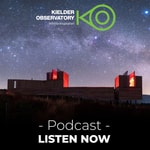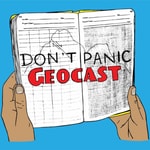Hostile Worlds: Exploring Space – Détails, épisodes et analyse
Détails du podcast
Informations techniques et générales issues du flux RSS du podcast.

Hostile Worlds: Exploring Space
The Podcast Host
Fréquence : 1 épisode/43j. Total Éps: 12

Classements récents
Dernières positions dans les classements Apple Podcasts et Spotify.
Apple Podcasts
🇬🇧 Grande Bretagne - astronomy
14/08/2025#49🇺🇸 États-Unis - astronomy
14/08/2025#100🇫🇷 France - astronomy
14/08/2025#85🇬🇧 Grande Bretagne - astronomy
13/08/2025#51🇺🇸 États-Unis - astronomy
13/08/2025#84🇫🇷 France - astronomy
13/08/2025#81🇬🇧 Grande Bretagne - astronomy
12/08/2025#43🇺🇸 États-Unis - astronomy
12/08/2025#71🇫🇷 France - astronomy
12/08/2025#81🇬🇧 Grande Bretagne - astronomy
11/08/2025#36
Spotify
Aucun classement récent disponible
Liens partagés entre épisodes et podcasts
Liens présents dans les descriptions d'épisodes et autres podcasts les utilisant également.
See all- https://www.iau.org/
13 partages
- https://saturn.jpl.nasa.gov/
7 partages
- https://www.kielderobservatory.org/
4 partages
- https://twitter.com/HostileWorldsHQ
2 partages
Qualité et score du flux RSS
Évaluation technique de la qualité et de la structure du flux RSS.
See allScore global : 48%
Historique des publications
Répartition mensuelle des publications d'épisodes au fil des années.
Hostile Worlds 30 Second Trailer
Épisode 1
mardi 8 août 2017 • Durée 00:31
Introducing Hostile Worlds
lundi 21 août 2017 • Durée 03:53
Here Comes The Sun | Episode 9
Épisode 9
jeudi 7 juin 2018 • Durée 23:35
Hello Sunshine | Episode 10
Épisode 10
lundi 19 novembre 2018 • Durée 22:18
Our Small & Fragile Existence | Episode 1
Épisode 1
lundi 28 août 2017 • Durée 19:57
A Titan Looms | Episode 2
Épisode 2
vendredi 8 septembre 2017 • Durée 28:22
Magic Islands, Cryovolcanoes, & Electric Snow | Episode 3
Épisode 3
lundi 25 septembre 2017 • Durée 33:53
Surviving in Open Space | Episode 4
Épisode 4
jeudi 16 novembre 2017 • Durée 14:22
Space, Relatively Speaking | Episode 5
Épisode 5
jeudi 21 décembre 2017 • Durée 16:58
The Life cycle of a Star | Episode 6
Épisode 6
vendredi 19 janvier 2018 • Durée 12:33









